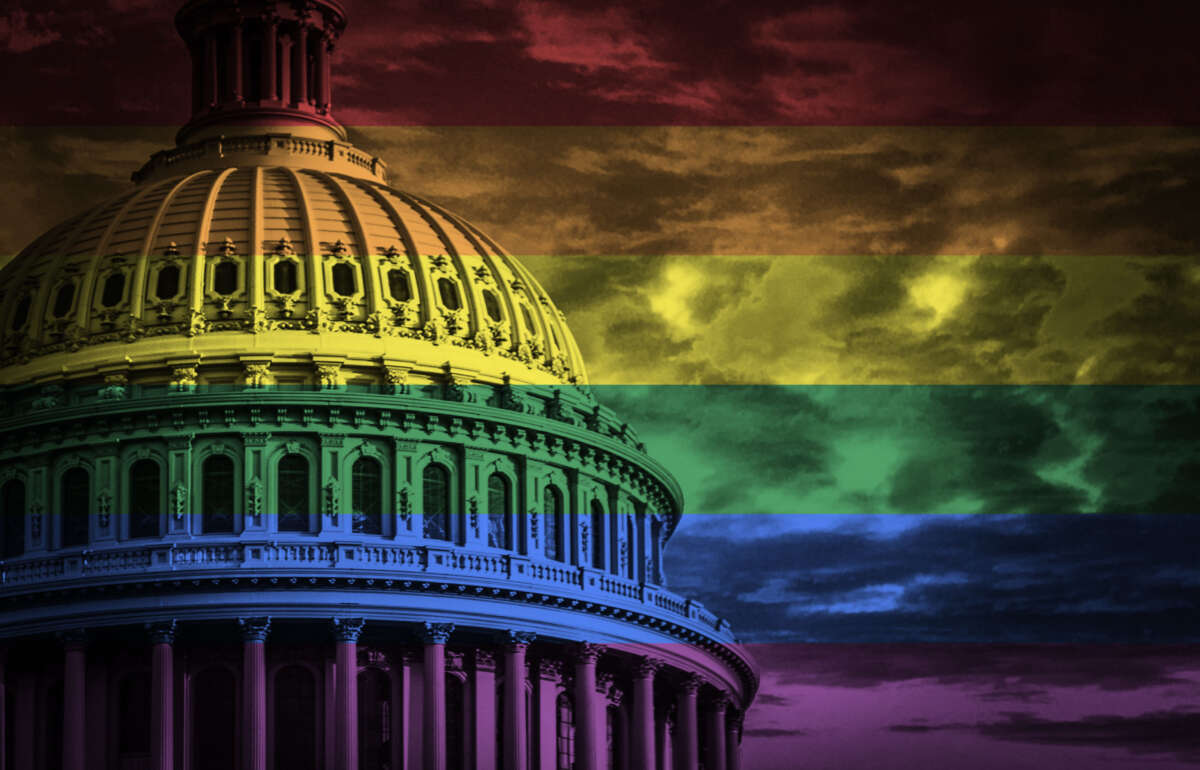The number of lawmakers across the country who identify as LGBTQ has increased significantly over the past decade, a new report details.
The “Out for America” report, compiled annually by the LGBTQ+ Victory Institute, has tracked the number of LGBTQ lawmakers in local, state and federal elected positions since 2017. As of May, the number of elected lawmakers in office is 1,303, the organization said.
That number is a 10 percent increase from just one year ago, and a 190.8 percent increase since the first “Out for America” report in 2017.
Importantly, and for the first time ever, there is at least one official in an elected position in every U.S. state and Washington D.C.
Although these gains are significant, there remains a “representation gap,” signaling that more work has to be done in order to have LGBTQ people represented in a proportional way. According to a Gallup poll from earlier this year, around 7.6 percent of the U.S. population identifies as LGBTQ. However, of the 519,682 elected positions that exist throughout the country, only 0.25 percent are held by a person who identifies as LGBTQ.
To close the gap and be truly representational, around 40,000 additional elected positions would need to be occupied won by an LGBTQ person.
“The representation gap is so large that we need a moonshot effort to close it, and that is more important than ever right now, given all the attacks in our communities from state legislatures and city councils across the country,” said Elliot Imse, the executive director of the LGBTQ+ Victory Institute, speaking to NBC News about the matter.
“Despite the historic news of having an LGBTQ+ elected official in every state and DC, we must remember just how important this year is for our candidates, elected officials, and our democracy. We know we still have a long way to go,” added Annise Parker, president and CEO of the LGBTQ+ Victory Institute, in a statement included in the “Out for America” report.
Congress has seen its share of LGBTQ people increase in recent years. However, some gains have been lost, too. While representation in the Senate went up to three seats total (from two seats counted in the previous report), in the House the number of seats held by LGBTQ members went down, from 11 seats to nine.
Notably, most (though not all) LBGTQ lawmakers across the country are typically Democratic-leaning, with the report noting that only 6.1 percent of elected LGBTQ officials are Republican. That coincides with a number of vehement attacks made by Republicans against the LGBTQ community in general in recent years, including by GOP presidential candidates Ron DeSantis and Donald Trump over this past year.
DeSantis, whose rise in popularity and eventual campaign relied heavily on his attacks, attended a fundraiser this past December where he accused “radical liberal parents” of child abuse for teaching them to respect symbols of LGBTQ Pride and support. As governor, he and the GOP-led state legislature have passed numerous laws targeting LGBTQ people, including the infamous “Don’t Say Gay” bill, which prevents schools from being safe places for LGBTQ schoolchildren, as well as a bill that allows the state to take away children from their parents for seeking gender-affirming health care options.
Donald Trump, who easily won the nomination to be the Republican candidate for president, has also made anti-LGBTQ promises a cornerstone of his campaign. He has vowed, for example, to roll back protections for transgender people that have been implemented by the Biden administration. He also has promised to block gender-affirming care treatments for transgender children, as well as for people on Medicaid or Medicare.
While these worrying attacks persist, other LGBTQ organizations are dedicating themselves to increasing representation across the country. Equality PAC, for example, is backing six federal House candidates this fall to increase the number of LGBTQ elected lawmakers in Congress.
Rep. Ritchie Torres (D-New York), co-chair of the PAC, recently said to NPR that advocates cannot rest on the gains that have been made, as threats to LGBTQ rights are still existent.
Despite the success of marriage equality in 2015, I think we have to be careful not to prematurely declare “mission accomplished,” not to lull ourselves into a false sense of security. A woman born in 2024 has fewer rights than she did in 1973, which is a tragic reminder that progress cannot be taken for granted, that LGBTQ rights can be every bit as fragile as reproductive rights.
Our most important fundraising appeal of the year
December is the most critical time of year for Truthout, because our nonprofit news is funded almost entirely by individual donations from readers like you. So before you navigate away, we ask that you take just a second to support Truthout with a tax-deductible donation.
This year is a little different. We are up against a far-reaching, wide-scale attack on press freedom coming from the Trump administration. 2025 was a year of frightening censorship, news industry corporate consolidation, and worsening financial conditions for progressive nonprofits across the board.
We can only resist Trump’s agenda by cultivating a strong base of support. The right-wing mediasphere is funded comfortably by billionaire owners and venture capitalist philanthropists. At Truthout, we have you.
We’ve set an ambitious target for our year-end campaign — a goal of $250,000 to keep up our fight against authoritarianism in 2026. Please take a meaningful action in this fight: make a one-time or monthly donation to Truthout before December 31. If you have the means, please dig deep.
